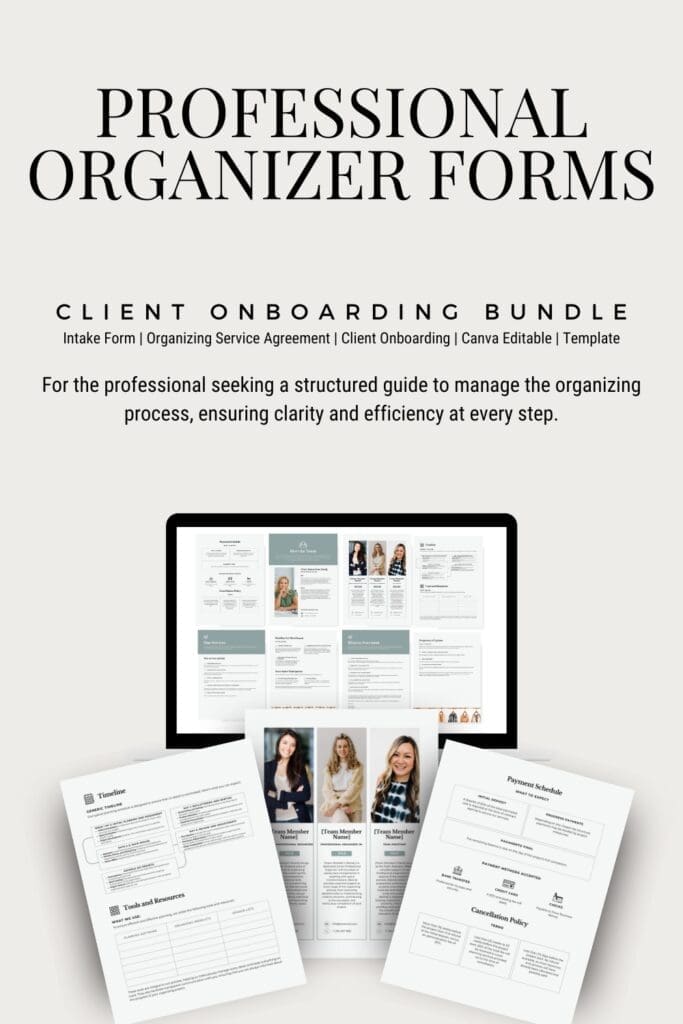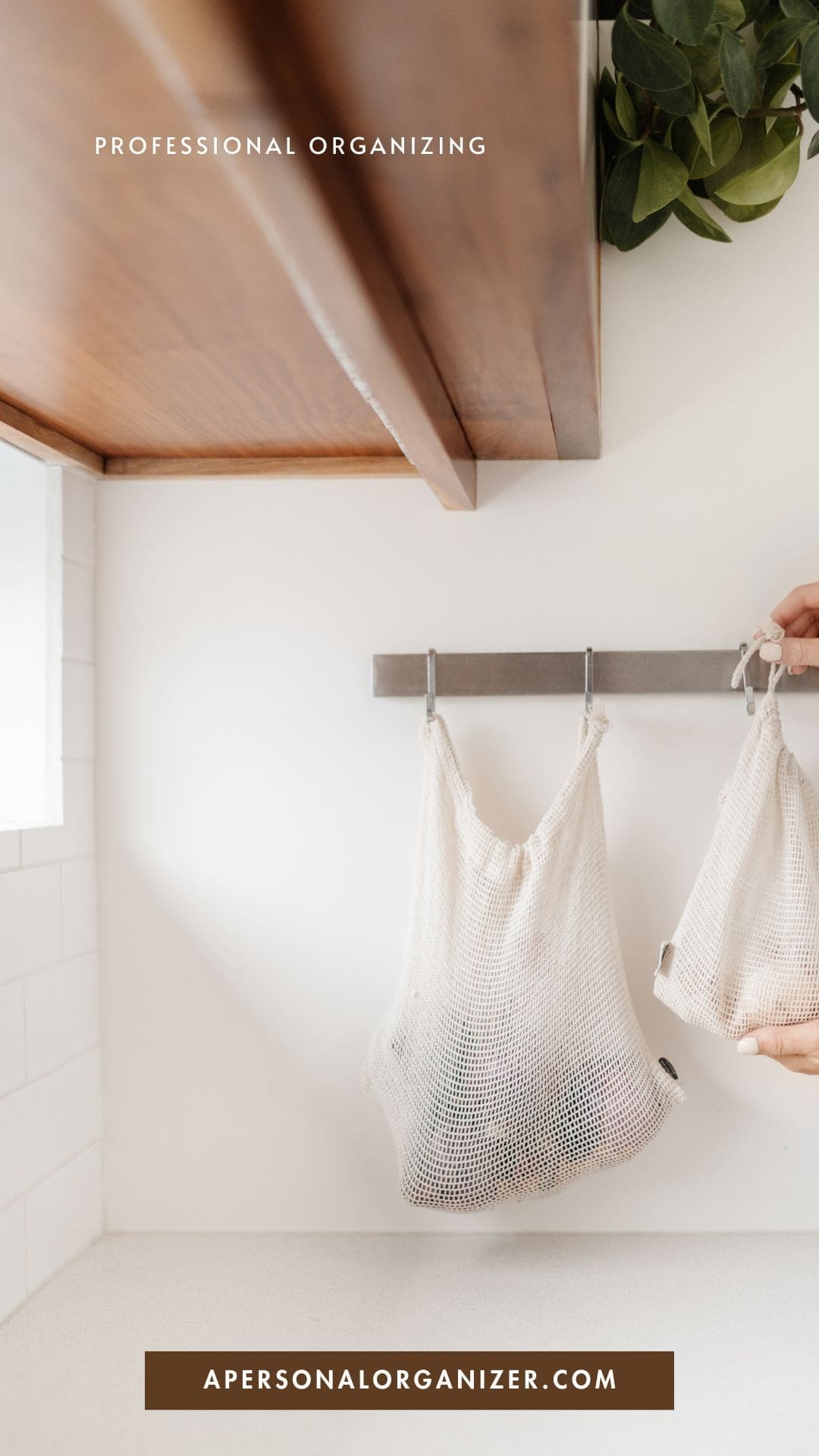This post may contain affiliate links for your convenience. As an Amazon Associate, A Personal Organizer, LLC earns from qualifying purchases.
Setting Up the Pillars of Your Professional Organizing Business
Today, we’ll work on the essential pillars of your professional organizing business.
Hello! Hello!
How are you doing this week? I hope you’re having a great time learning and working on building your business!
Now that you have completed your work on the last posts, conducted market research, and chosen the name of your business, it’s time to create the basic structure of your business.
We will cover the legal, financial, and logistical steps you will need to address. So let’s pay great attention to them.
You want to have everything set up correctly so that when you start taking clients, receiving payments, and when tax time comes around, you have everything in place and can enjoy each step of the way instead of scrambling to get it done.
Thinking through and implementing every part of your business professionally will make you feel and look (you guessed it!) professional.

Estimated reading time: 6 minutes
Legal, Finances & Logistics
As I did in the previous texts, I will go through each step in a commented checklist format, allowing you to print and start working on your list.
Since I’m not a CPA or a lawyer (in the US), you must consult a professional to clarify all these points and explain the outcomes of your choices.
For example, the business structure you select will impact your taxes, so you must understand them beforehand.
1. Legal Structure
It’s time to decide on your business structure.
Sole Proprietor
Most of us start our businesses as sole proprietors, and then, as things pick up and we feel we have tested the water enough to know this is what we want, we move to other business structures.
Let’s see what a sole proprietorship means.
The U.S. Small Business Administration defines sole proprietorship as “the simplest and most common structure chosen to start a business. It is an unincorporated business owned and run by one individual with no distinction between the business and you, the owner. You are entitled to all profits and are responsible for all your business’s debts, losses, and liabilities.”
Let’s break this down.
As we compare the two most common forms of business structure when we’re starting, the critical points we should pay attention to in this definition are:
- It’s unincorporated versus incorporated, similar to an LLC.
- Owned and run by one individual – no partners.
- No distinction between the business and the owner.
- You are entitled to all profits.
- Responsible for all the business’s debts, losses, and liabilities, which makes you and your assets personally liable in case you’re sued.
A simple way to summarize a sole proprietorship is that there’s no distinction between you and your business in the eyes of the law. They’re one entity and will be treated as such.
While it is the simplest form of starting your business, you’ll still have to comply with State and local requirements like business licenses and permits. Search your Secretary of State and your city websites to check and comply where needed.
Limited Liability Corporation – LLC.
The second most common route for starting your small business is the Limited Liability Corporation, LLC.
LLCs are a business structure allowed by state statute, and each state will have its own regulations about it.
By deciding to create an LLC, instead of taking the sole proprietorship route, you separate your business assets from your personal ones, which will protect you from debts or costs associated with your company — the most significant selling point about LLCs.
Compared to a Sole Proprietorship, what will distinguish an LLC is that you can have one or more people as owners, and the owners are not personally liable. Tax-wise, you will pay self-employment tax in addition to personal or corporate tax, while in a sole proprietorship, you’ll pay personal tax only.
While I wanted to provide you with an overview of these two most commonly used business structures, you may also consider others. Whatever your decision, I advise you to consult a qualified professional to assess your situation and help you determine which option works best for you.
2. Finances
Once your business is registered, open a separate bank account from your personal account and have a credit card for your business, different from your private card.
This is critical because if you start mixing your personal expenses with your business expenses, the likelihood of making mistakes is high. So, take out your monthly fixed income (salary) and leave the rest of the money in your business account as working capital.
Another critical point is to research the payment options you can offer your customers. Check and cash are the most common forms of payment in our industry; however, offering alternatives like Zelle, PayPal, or credit cards might open the doors to larger projects.
Accounting – you should be tracking income and expenses as soon as you’re open for business.
The easier route is to use a service like FreshBooks, QuickBooks, or Bench.co. When tax time comes around, or if the IRS ever audits you, you’ll be so happy you have all your receipts, expenses, and income filed and organized.
Finding an accountant – They will be an essential partner in your entrepreneurial journey. Select this professional carefully; ensure you communicate effectively and that they are prompt, organized, and able to answer all your questions.
3. Insurance
Business insurance is a biggie for me. I know this can become one of your most significant expenses when you’re starting; however, not having it can put your business at risk even before it has a chance to get off the ground. And that’s why I’m not joking when I say I don’t even leave my house to offer a consultation if I don’t have insurance.
It’s common for colleagues to start without insurance, but consider these simple and not uncommon scenarios for a professional organizer:
- You move a piece of furniture at a client’s home, and you scratch the hardwood floor or rip the carpet.
- You are organizing documents and advising your client about shredding specific documents. Months later, the client receives a letter from the IRS initiating an audit, and she needs all the documents, including the ones you shredded.
- You make a recommendation on installing shelves to improve storage and decide to install it yourself since you’re a very handy person. In the process, you perforate a pipe that is now leaking and flooding the house.
- You are decluttering a house, and when moving things from room A to room B, you break a valuable or irreplaceable item.
As you can see, these situations can happen to all of us. However, if you don’t have insurance, you and your business (depending on your business structure) may be liable and responsible for the repairs, among other expenses.
To determine the type and amount of coverage you need, I recommend scheduling a time with an insurance agent and clearly explaining the type of work you will perform.
If you are a NAPO member, you can look for the NAPOsure option.
Types of insurance to be considered:
- Liability, commercial and professional
- Errors and omissions
- Income protection, like disability
- Auto insurance
Very well! That’s all for today.
You’ll have plenty of work to get done, and I am looking forward to hearing from you and your new business!
Pro Organizing Planners
Professional Organizer Forms
Transform your Organizer Business with our comprehensive Professional Organizing templates! Designed specifically for Professional Organizers, these tools will help you streamline your client management and improve your business operations. Our customizable Organizer Contract, Client Intake Form, and Client Agreement ensure clear communication and professionalism with every project.
Read More Pro Organizing Business
SEE ALL >>













